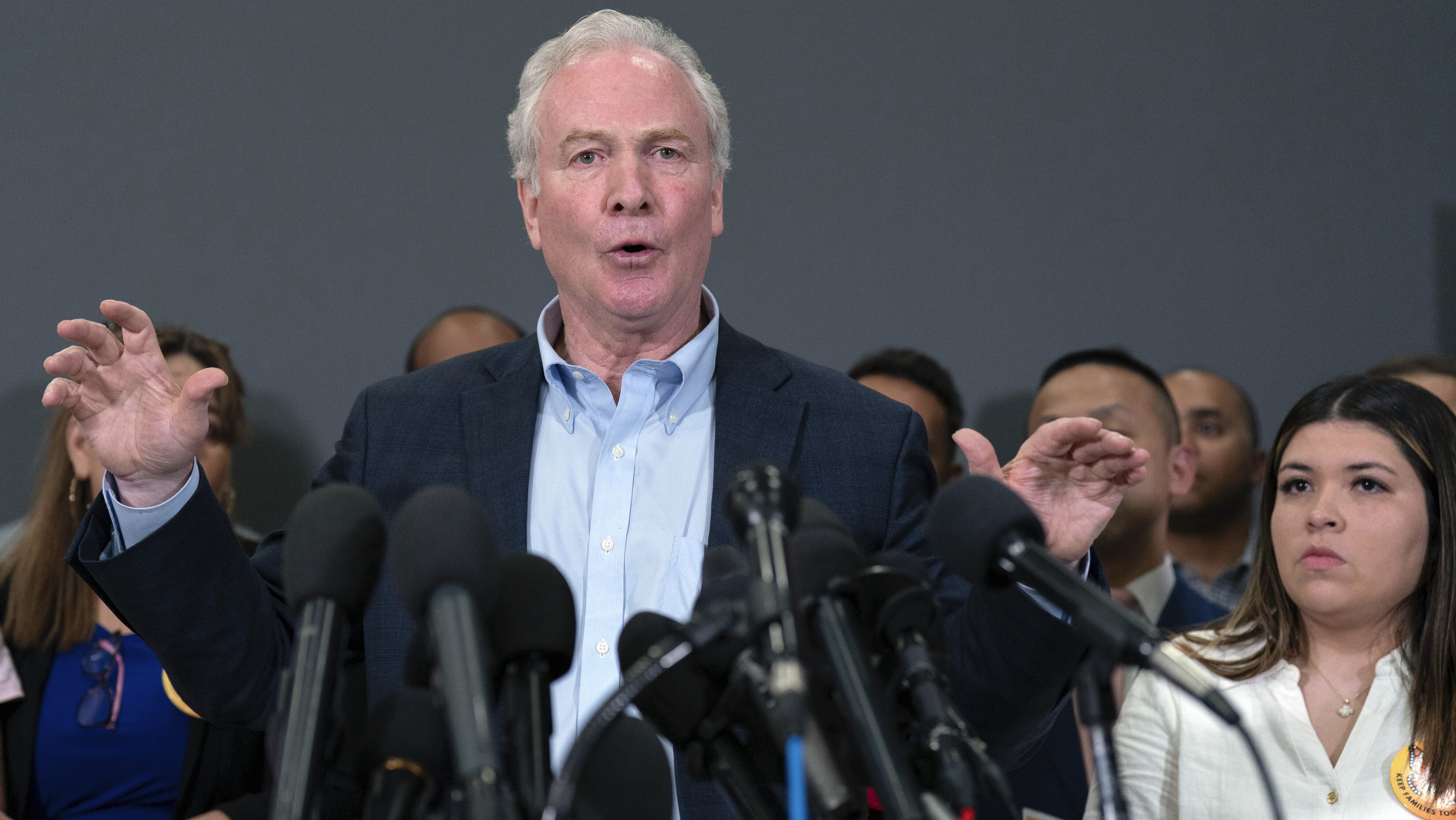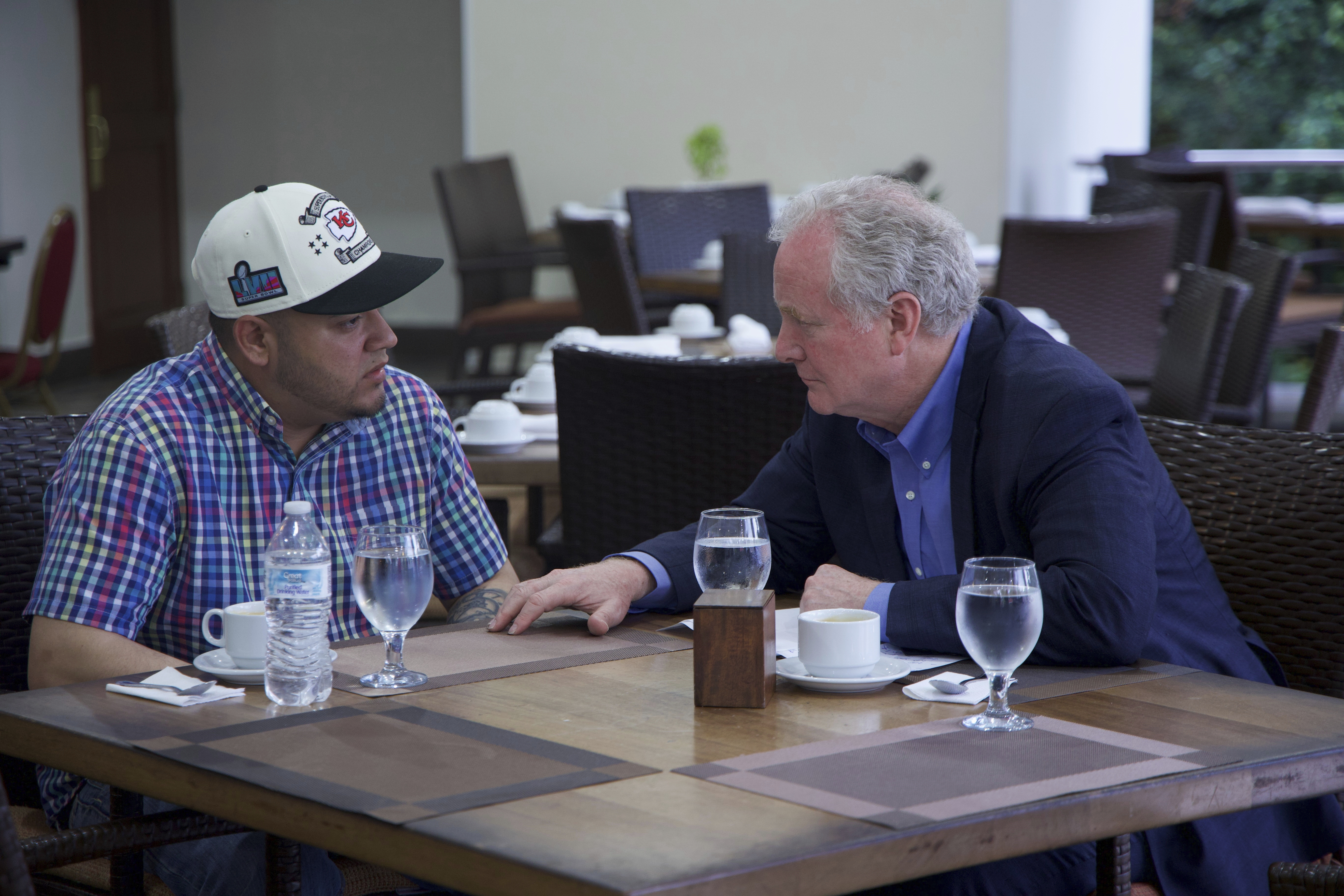Abrego Garcia: Trauma After Mistaken Deportation Revealed
Mistaken Deportation: Senator Reveals Abrego Garcia's Trauma in El Salvador
A Shocking Revelation: The Human Cost of Deportation Errors
Imagine being ripped from your life, your family, and everything you know, only to find out it was all a terrible mistake. That's the reality Kilmar Abrego Garcia faced, a reality brought to light by Maryland Senator Chris Van Hollen. But what exactly happened, and what does it mean for Abrego Garcia and others caught in the crosshairs of immigration policy? Let's delve into the details of this case and explore the emotional toll of such an error.
Senator Van Hollen's Mission: Unveiling the Truth
Sen. Chris Van Hollen, a Democrat from Maryland, took a proactive step by meeting with Kilmar Abrego Garcia in El Salvador this week. This meeting followed previous attempts that were reportedly blocked by Salvadoran officials. Van Hollen's persistence underscores the urgency and importance of this case.
Breaking Through the Barriers
Gaining access to Abrego Garcia wasn't easy. The initial denial of access raises questions about transparency and the willingness of authorities to address potential errors in the deportation process. Was there an attempt to suppress information? Van Hollen's determination to meet with Abrego Garcia highlights the importance of independent oversight.
The News Conference: Sharing Abrego Garcia's Story
Returning from El Salvador, Senator Van Hollen held a press conference at Washington Dulles International Airport. His mission? To share the information he gathered and shed light on the realities of Abrego Garcia's situation.
A Silent Tragedy: Abrego Garcia's Unawareness
One of the most striking revelations from the press conference was that Abrego Garcia was completely unaware of the national attention his case had garnered. Imagine being in such a vulnerable situation, unaware of the widespread efforts to bring you justice. This highlights the isolation and powerlessness that can accompany deportation.
The Impact of Deportation: More Than Just a Border Crossing
Deportation isn't simply about crossing a border. It's about disrupting lives, families, and communities. It's about uprooting individuals from the places they call home. What are the broader consequences of these actions?
The Trauma of Displacement
Sen. Van Hollen specifically mentioned that Abrego Garcia was traumatized in El Salvador following his mistaken deportation. Think about the mental and emotional toll of being suddenly thrust into an unfamiliar environment, separated from loved ones, and grappling with the uncertainty of your future. Trauma can manifest in many ways, impacting mental health, relationships, and overall well-being.
The Ripple Effect on Families
Deportation doesn't just affect the individual being deported; it profoundly impacts their families and communities. Spouses, children, parents, and friends all experience the pain and disruption caused by separation. How can we better understand and address these ripple effects?
The Legal Landscape: Navigating the Complexities
Immigration law is notoriously complex and constantly evolving. What are the legal avenues available to individuals like Abrego Garcia who have been wrongfully deported?
The Fight for Justice
The legal battle to correct mistaken deportations can be lengthy and arduous. It requires dedicated legal representation, thorough documentation, and a strong commitment to fighting for justice. What are the challenges involved in this process?
The Role of Advocacy Groups
Immigration advocacy groups play a crucial role in providing legal assistance, raising awareness, and advocating for policy changes. These groups often work tirelessly to support individuals and families navigating the complexities of the immigration system. How can we support their efforts?
Beyond Abrego Garcia: A Systemic Problem?
Is Abrego Garcia's case an isolated incident, or does it point to a broader systemic problem within the immigration system? How can we prevent similar errors from happening in the future?
Addressing Systemic Issues
Preventing mistaken deportations requires a multi-faceted approach, including improved data management, enhanced communication between agencies, and increased oversight of deportation procedures. Are these steps being taken?
The Need for Accountability
When mistakes occur, it's essential to hold individuals and agencies accountable. This can help prevent future errors and ensure that those affected receive appropriate compensation and support. What mechanisms are in place to ensure accountability?
The Human Element: Empathy and Understanding
It's easy to get lost in the legal jargon and policy debates surrounding immigration. But at the heart of every case are real people with real stories. How can we cultivate greater empathy and understanding for those impacted by immigration policies?
Putting Yourself in Their Shoes
Imagine the fear, uncertainty, and desperation of being separated from your loved ones and facing deportation. By putting ourselves in their shoes, we can gain a deeper appreciation for the human cost of immigration policies.
The Power of Personal Stories
Sharing personal stories can be a powerful way to humanize the immigration debate and promote empathy. When we hear about the experiences of individuals like Abrego Garcia, we are more likely to understand the impact of policy decisions on real lives.
The Future of Immigration Reform: A Call to Action
Abrego Garcia's case serves as a stark reminder of the need for comprehensive immigration reform. What steps can we take to create a more just and humane immigration system?
Advocating for Change
We can advocate for policy changes that prioritize due process, protect vulnerable populations, and address the root causes of migration. What are the key policy changes needed?
Supporting Organizations
We can support organizations that are working to provide legal assistance, advocate for policy reform, and assist immigrants in navigating the system. Which organizations are making a difference?
Conclusion: A Mistake with Lasting Consequences
The mistaken deportation of Kilmar Abrego Garcia underscores the human cost of errors in the immigration system. Senator Van Hollen's meeting with Abrego Garcia revealed the trauma he experienced in El Salvador, highlighting the urgent need for systemic reform and increased empathy. This case serves as a call to action, urging us to advocate for a more just and humane immigration system that protects vulnerable populations and ensures due process for all.
Frequently Asked Questions (FAQs)
- What exactly was the mistake in Abrego Garcia's deportation?
The specifics of the mistake haven't been fully detailed in the provided information, but the implication is that Abrego Garcia was improperly identified as someone subject to deportation, leading to his wrongful removal from the United States. - What are the potential legal remedies for someone who has been mistakenly deported?
Potential legal remedies can include seeking a stay of deportation, filing a motion to reopen the case, or pursuing a lawsuit against the government for damages caused by the wrongful deportation. The specific remedies available will depend on the individual circumstances of the case. - How common are mistaken deportations?
While precise statistics are difficult to obtain, mistaken deportations are believed to be more common than many realize due to the complexities of immigration law and the potential for errors in data management and identification. - What can individuals do to prevent being mistakenly deported?
Individuals can ensure they have proper documentation, maintain accurate records of their immigration history, and seek legal counsel to understand their rights and obligations. It is crucial to respond promptly and honestly to any communication from immigration authorities. - What role can government officials play in preventing future mistaken deportations?
Government officials can implement robust data management systems, provide adequate training to immigration officers, ensure due process protections are in place, and establish independent oversight mechanisms to review deportation procedures and address potential errors.

